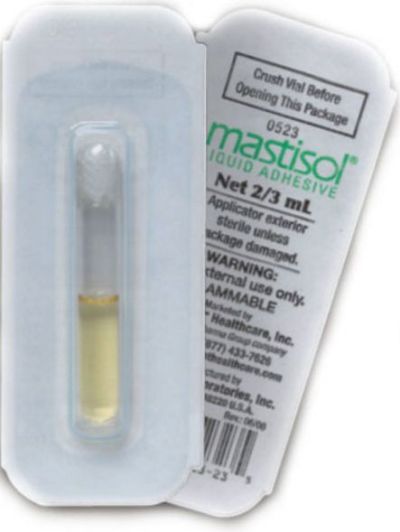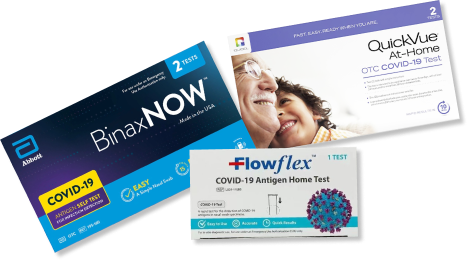-
Catheters (6,800+)
- Angiocatheters (50+)
- Closed System Catheters (300+)
- External Catheters (620+)
- Hydrophilic Catheters (140+)
- IV Catheters (1,200+)
- Non-Hydrophilic (20+)
- Plastic Catheters (200+)
- Rubber Catheters (700+)
- Silicone Catheters (770+)
- Ureteral Catheters (100+)
- Urethral Catheters (450+)
- Venous Catheters (240+)
-
Coronavirus (20,000+)
- Bacterial Filters (170+)
- Bleach (360+)
- Coveralls (500+)
- Disinfectant Wipes (350+)
- Face Shields (200+)
- Gloves (8,000+)
- Gowns (2,300+)
- Isopropyl Alcohol (170+)
- IV Therapy (2,000+)
- Masks (3,700+)
- Pulse Oximeters (250+)
- Sanitizer (670+)
- Scrubs (20,000+)
- Soap (1,500+)
- Stethoscopes (700+)
- Thermometers (950+)
- Custom Kits
- Dental (14,000+)
- Gloves (8,000+)
-
Gynecology & Urology (1,000+)
- Bed Side Drainage Bags (350+)
- Circumcision (150+)
- Cord Clamps and Clippers (60+)
- Disposable Vaginal Specula (60+)
- Enema Bags (30+)
- External Catheters (620+)
- Foley Catheters and Trays (1,200+)
- Identification (1100+)
- Leg Bag Accessories (10+)
- Leg Bags (280+)
- Reusable Vaginal Specula (900+)
- Specimen Collection (200+)
- Tubing & Connectors (17,000+)
- Urinals / Bed Pans (1,300+)
- Urine Collectors (60+)
- Urological Irrigation Products (10+)
- Vaginal Specula Illumination (2+)
- Systems (11,000+)
- Hygiene (1,000+)
- Incontinence (1,000+)
-
Infection Control (2,500+)
- Bacterial Filters (170+)
- Bleach (360+)
- Coveralls (500+)
- Disinfectant Wipes (350+)
- Face Shields (200+)
- Gloves (8,000+)
- Gowns (2,300+)
- Iodine (460+)
- Isopropyl Alcohol (170+)
- IV Therapy (2,000+)
- Masks (3,700+)
- Pulse Oximeters (250+)
- Sanitizer (670+)
- Soap (1,500+)
- Stethoscopes (700+)
- Thermometers (950+)
- Infusion All (2,000+)
- IV Bags - Empty (300+)
- IV Bags - Filled (100+)
- Masks (3,800+)
-
Medical Apparel (23,000+)
- Arm Sleeves (240+)
- Beard Covers (20+)
- Bouffant Caps (200+)
- Compression Socks (80+)
- Coveralls (500+)
- Disposables (100+)
- Isolation Gowns (360+)
- Lab Coats (2,200+)
- Lab Jackets (300+)
- Patient Gowns (300+)
- Procedural Gowns (230+)
- Scrubs (20,000+)
- Shoe Covers (270+)
- Surgeon Caps (40+)
- Surgical Gowns (70+)
- Surgical Hoods (20+)
- Surgical Masks (330+)
- Ostomy (400+)
-
PPE (20,000+)
- Bacterial Filters (170+)
- Bleach (360+)
- Coveralls (500+)
- Disinfectant Wipes (350+)
- Face Shields (200+)
- Gloves (8,000+)
- Gowns (2,300+)
- Isopropyl Alcohol (170+)
- IV Therapy (2,000+)
- Masks (3,700+)
- Pulse Oximeters (250+)
- Sanitizer (670+)
- Scrubs (23,000+)
- Soap (1,500+)
- Stethoscopes (700+)
- Thermometers (950+)
- Respiratory (500+)
- Sanitizer (600+)
- Surgical Supplies (14,000+)
- Sutures (7,500+)
- Syringes & Needles (14,000+)
-
Wound Care (5,000+)
- ABD Pads (100+)
- Adhesive Bandages (650+)
- Advanced Wound Care (400+)
- Applicators (6,700+)
- Burn care (240+)
- Dressings (7,500+)
- Elastic Bandages (1,600+)
- Gauze (3,300+)
- Ice / Heat Packs (280+)
- Medical Tape (820+)
- Non-Adhering Dressings (100+)
- Ointment & Solutions (450+)
- Self-Adherent Wraps (200+)
- Sponges (2,400+)
- Staple & Suture Removal (1,500+)
- Tegaderm (450+)
- Transparent Dressing (800+)
- Wound Care Prep (120+)
- Wound Cleansers (100+)
- Sales & Deals (100+)
- 3M (4,200+)
- Alaris Medical (600+)
- Amsino International (550+)
- Avanos Medical (40+)
- B Braun (1,500+)
- Baxter (750+)
- BD (2,800+)
- BSN Medical (2,000+)
- Cables & Sensors (3,200+)
- C.R. Bard (4,200+)
- Cardinal Health (6,800+)
- CareFusion (2,100+)
- ConMed (1,500+)
- Cook Medical (600+)
- Covidien (9,500+)
- DeRoyal (6,000+)
- Dukal (1,300+)
- Ethicon (4,100+)
- GE Healthcare (1,000+)
- Hartmann (600+)
- Hospira (530+)
- ICU Medical (1,700+)
- Masimo (170+)
- Medline (54,000+)
- Midmark (2,500+)
- Roche (300+)
- Smiths Medical (4,000+)
- Sunset Healthcare (450+)
- TrueCare Biomedix (20+)
- View All Brands (5,000+)

Ferndale Laboratories 0523-48 - Liquid Adhesive Mastisol 2/3mL Skin Btl Clr Disp 48/Bx
NOTHING SECURES LIKE MASTISOL Locks down catheter dressings to help adhere to CDC guidelines.
A clear, non-irritating liquid adhesive used to aid in the securement of dressings, wound closure strips, tapes, and medical devices. A non-water soluble, ensuring the integrity of dressings and devices on diaphoretic patients or in moist environments.
ENSURE COMPLIANCE WITH CDC GUIDELINES
1. Protect against the risk of infection: CDC Guidelines for the Prevention of Intravascular Catheter-Related Infections recommend:
- Replacement of catheter site dressing if damp, loosened, or visibly soiled (Category IB).
- Replacement of dressings on short-term central venous catheter (CVC) sites at least every 7 days (Category IB).
2. CDC Guidelines for the Prevention of Catheter-Associated Urinary Tract Infections recommend:
- Properly secured indwelling catheters after insertion to prevent movement and urethral traction (Category IB).
3. Assure adherence:
- Mastisol is a nonwater soluble adhesive.
- Ensures that dressings will remain intact if the patient is diaphoretic or if the dressings are placed in moist, contaminant prone areas.
- More than 8 million applications every year.
- Adhesion is superior to tincture of benzoin.
4. Reduce the risk of infection
- Recent data suggests that dressing disruptions are a major risk factor for catheter-related infections.
- In a study of catheter-related bloodstream infections: 60% of infections were attributed to skin flora or other contamination coming in contact with the catheter insertion point.
- Mastisol minimizes infection risk by helping to keep the system closed and the dressing intact for the recommended dressing stay time.
5. Enhance tape/dressing performance
- In a study designed to evaluate the effects of different techniques used to secure intravenous catheters.
- Pretreatment of skin with Mastisol enhanced the adhesive performance of all tapes tested,* better than benzoin or no treatment at all.
- Mastisol can also enhance the adhesive performance of a variety of occlusive dressings and devices.

Benefits
1. Mastisol can improve patient safety
- Minimizes the risk of infection by creating a lasting occlusive dressing barrier, particularly around CVC sites.
- Reduces the likelihood of dressing displacement and device dislodgement.
- Reduced risk of adverse reactions (lower incidence of postoperative contact dermatitis and skin discoloration than tincture of benzoin).
- Is latex free to alleviate potential allergic reactions.
2. Mastisol assures convenience and versatility for healthcare professionals
- Long-lasting adhesion saves time and cost of multiple dressing replacements or device dislodgements
- Versatility across a range of procedures and applications
FAQs
1. What is Mastisol?
- Mastisol is a liquid medical adhesive used to secure dressings, tapes, and certain medical devices. Mastisol ensures the integrity of these tapes and devices over an extended period of time.
2.What are the Ingredients of Mastisol?
- Gum Mastic, Styrax, Alcohol (SDA-23), and Methyl Salicylate.
3.What is Mastisol Used for?
- Operating Room: Wound Closure Strip Securement, ET Tube Securement.
- Intensive Care Units: IV & Arterial Line Dressing Securement, ET Tube & NG Tube Securement, Fecal Management Bag & Foley Anchor Securement.
- Hematology/Oncology: IV Dressing Securement, Wound Dressing Securement.
- Emergency Room: Wound Closure Strip Securement, Wound Dressing Securement, Chest Tube Securement.
- Pediatrics: Wound Closure Strip Securement, Wound Dressing Securement, ET Tube & NG Tube Securement.
- Respiratory Therapy: ET Tube & NG Tube Securement.
- Wound Ostomy: Ostomy Appliance Securement, Wound Dressing Securement, NPWT Drape Securement.
- IV Therapy: IV Dressing Securement
- Sleep Lab/Telemetry: Lead Securement.
4. How does Mastisol compare to Benzoin?
- According to a study conducted by Dr. Lesesne, loss of adhesiveness was experienced in 60 out of 150 (40%) patients with benzoin, compared to only 10 out of 150 (7%) patients with Mastisol. Additionally, temporary contact dermatitis developed in 57 benzoin treated patients compared to with 1 Mastisol treated patient.

